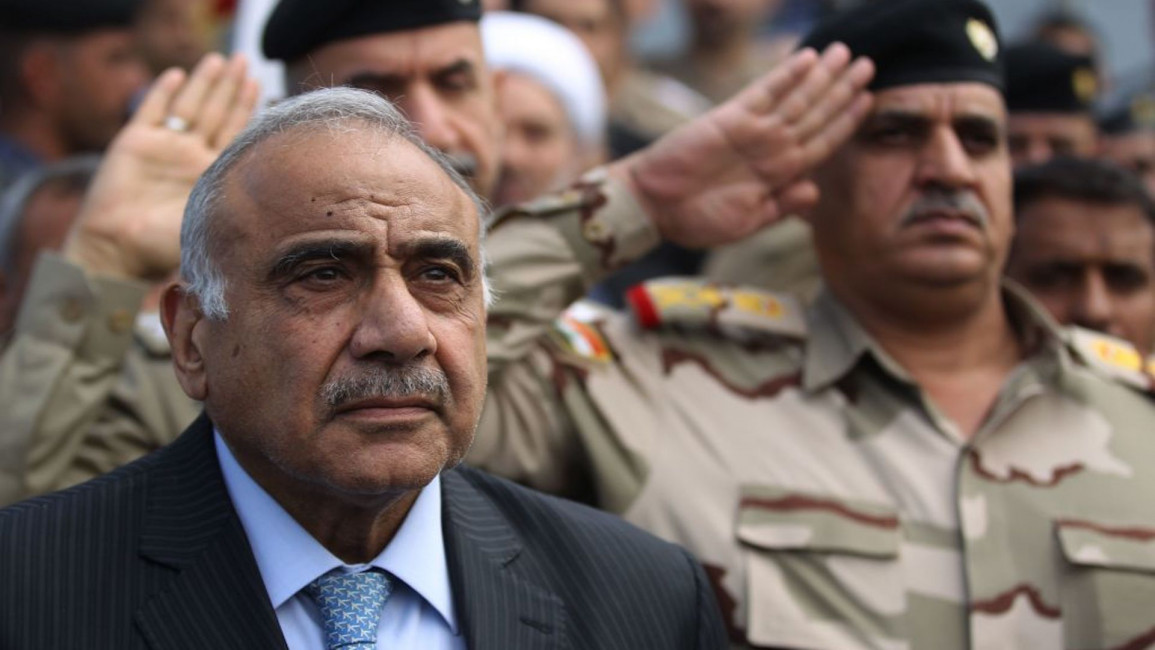Iraq warns against 'escalation' after strikes on US interests
Tehran wields growing influence in Iraq, particularly through armed factions. Since October 28, ten rocket attacks have targeted areas where US soldiers and diplomats are stationed.
They have not been claimed, but the United States has blamed Iranian-backed Shia paramilitary groups.
On Monday, US defence secretary Mark Esper "expressed his concern" over the strikes in a telephone call with outgoing prime minister Adel Abdel Mahdi, according to a statement from the premier's office.
In response, Abdel Mahdi "called on everyone to spare no effort to prevent an escalation that will threaten all parties," the statement added.
"Unilateral decisions will trigger negative reactions that will make it more difficult to control the situation and will threaten Iraq's security, sovereignty and independence," he said.
Twitter Post
|
Abdel Mahdi, a close ally of Iran who also enjoyed cordial relations with the US, resigned in early December after the two months of unprecedented demonstrations in the capital and Shia-majority south in which around 460 people have died.
Negotiations are under way to name his successor.
"If the Iraqi government or state weakens, this will exacerbate escalation and chaos," Abdel Mahdi told Esper, according to the statement.
Iran has gained overwhelming influence in Iraq since the 2003 US invasion brought down Saddam Hussein.
A US source recently told AFP that pro-Iran factions in Iraq were now considered a more significant threat to American soldiers than the Islamic State group (IS).
"Abdel Mahdi fears that an American response to the strikes... could turn into clashes on Iraqi soil," a senior Iraqi official told AFP on condition of anonymity.
The attacks have killed one Iraqi soldier and left others wounded as well as causing material damage in the vicinity of the US embassy in Baghdad's ultra-secure Green Zone.
The US has recently reinforced its security at the embassy, according to an Iraqi security source, who said "a convoy of 15 American vehicles each transporting armoured trucks and weapons entered the Green Zone".
Top US diplomat Mike Pompeo on Friday warned Iran's leaders "that any attacks by them, or their proxies of any identity, that harm Americans, our allies or our interests will be answered with a decisive US response".
US officials say they are considering sending 5,000 to 7,000 troops to the region to counter Iran, although Esper on Friday again denied a report that a 14,000-strong deployment was under discussion.
Follow us on Twitter and Instagram to stay connected



